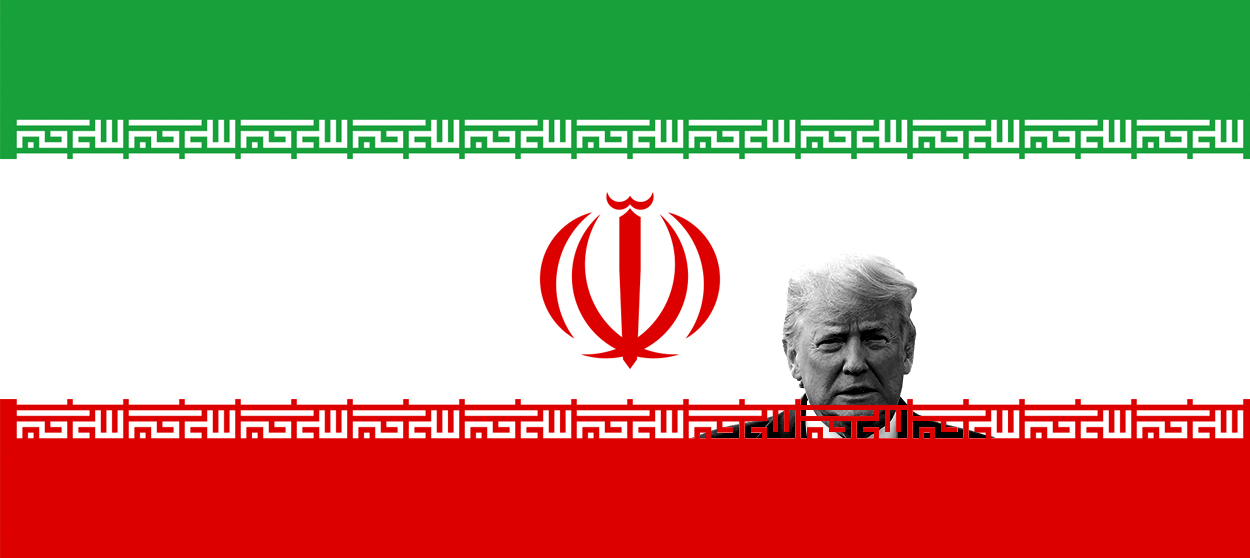Will Trump's Iran sanctions backfire?
Probably!


A free daily email with the biggest news stories of the day – and the best features from TheWeek.com
You are now subscribed
Your newsletter sign-up was successful
President Trump is getting tough on Iran.
He ostensibly hopes that biting new sanctions will force Tehran back to the negotiating table on its nuclear weapons program. But it probably won't work. In fact, it will likely backfire.
Back in 2015, the Obama administration and a number of other countries signed a deal with Iran, lifting economic sanctions on the country in return for limits on its nuclear weapons program. President Trump lambasted the agreement for years, once calling it "the worst deal ever." After he reached the White House, Trump scuttled the deal. Thus, the sanctions came back, targeting over 700 individuals, businesses, and organizations throughout Iran's economy.
The Week
Escape your echo chamber. Get the facts behind the news, plus analysis from multiple perspectives.

Sign up for The Week's Free Newsletters
From our morning news briefing to a weekly Good News Newsletter, get the best of The Week delivered directly to your inbox.
From our morning news briefing to a weekly Good News Newsletter, get the best of The Week delivered directly to your inbox.
To hear the White House tell it, this is a straightforward effort to get Iran back to the bargaining table to agree to tougher terms. Unfortunately, the return of sanctions will likely have complicating side effects.
First off, no other signatories to the deal wanted to ditch it. Britain, France, Germany, the European Union as a whole, plus China and Russia, have no interest in joining Trump's renewed sanctions push.
Of course, the American economy is huge, with global reach. Foreign businesses and banks do not want to risk getting cut off from the U.S. by doing business with Iran. Nevertheless, the Europeans are working on a special entity that would allow non-American banks and companies to trade with Iran beyond the scrutiny or reach of U.S. policy.
Many business and banks don't know if the entity would actually succeed in shielding them, and are loath to take the risks. And the Europeans haven't even agreed on which country or organization would house and oversee the effort, because everyone's afraid of the Americans. At the same time, lots of smaller European firms may either do business with Iran that isn't covered by the sanctions or may sneak in under the radar. Russian businesses are already relatively removed from U.S. reach, and could continue buying and selling from Iran. The Chinese have some experience working around U.S. sanctions as well.
A free daily email with the biggest news stories of the day – and the best features from TheWeek.com
But what Europe is doing is really a remarkable and open display of defiance against the Trump administration and U.S. geopolitical hegemony.
Officially, the White House is taking a tough line. "We do not intend to allow our sanctions to be evaded by Europe or anybody else," National Security Adviser John Bolton said last week. But the Trump administration already issued eight waivers to different countries — including China, Japan, India, and South Korea — that will allow them to at least temporarily trade with Iran in certain areas without suffering U.S. retaliation. No country in the European Union was included, but it was a tacit admission by Trump's team of the perils of enforcing the sanctions.
Then there's the matter of oil.
Iran's oil production is not a huge part of the global market. But that market is also already dealing with a supply deficit; there isn't much room to maneuver without causing the price to jump around significantly. Iran's oil output has already fallen by a million barrels a day since its peak earlier this year, and is forecasted to fall by another million by mid-2019. Saudi Arabia and the other members of OPEC may ramp up production to compensate. But they don't appear to have much spare capacity.
Energy Secretary Rick Perry confidently predicted that American oil production can compensate the global market for the loss of Iranian supplies — but that is hardly assured.
Meanwhile, the Iranian leadership insists its oil exports will continue. And no one knows how much oil could "leak" out, either through arrangements that circumvent the sanctions or the waivers. But oil is already trading from $63 to $73 a barrel, and experts anticipate the sanctions could push it past the $100 mark.
President Trump's car-salesman instincts have led him to champion cheap oil as a benefit of his leadership, and to stump for its continuance. But his own Iranian policy may trip him up.
So what should we make of all this?
If Trump's goal is to force Iran back into negotiations, he may find himself sorely disappointed. Sanctions cause suffering, and that suffering will cause ever more political unrest. There are already growing protests within Iran. It was Iran's moderates who pushed for the original deal, and they're the most likely to be discredited within Iranian politics by Trump's about-face. If the sanctions lead to regime change, it will almost certainly be a regime even more hostile to cooperation with the West.
"The extent to which the Islamic republic feels threatened or senses opportunity in its neighborhood largely defines its conduct," a recent report from the International Crisis Group read. "Measured against that standard, the Trump administration's aggressive policy is likelier to spur Iran's regional activism than to curb it."
Like so much else about this presidency, it seems that on Iran, reality is in direct conflict with Trump's rhetoric.
Jeff Spross was the economics and business correspondent at TheWeek.com. He was previously a reporter at ThinkProgress.
